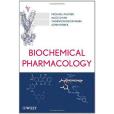內容簡介
An integrated approach to the study of drug action mechanisms Biochemical Pharmacology is a concise and contemporary textbook on the principles of drug action. It discusses representative drugs by example to explore the range of biochemical targets and mechanisms. The book explains some of the experiments that tell us how drugs work, and it outlines the physiological and pathol...(展開全部) An integrated approach to the study of drug action mechanisms Biochemical Pharmacology is a concise and contemporary textbook on the principles of drug action. It discusses representative drugs by example to explore the range of biochemical targets and mechanisms. The book explains some of the experiments that tell us how drugs work, and it outlines the physiological and pathological context that make those action mechanisms therapeutically useful. Biochemical Pharmacology is intended primarily for students in biology and biochemistry at the advanced undergraduate or graduate levels. For classroom use, the illustrations from the book are separately available as PowerPoint slides. It is written in a conversational, vivid style that readily encourages students to explore this important area of medical science. Biochemical Pharmacology can also serve as an introduction for professionals in biosciences, as well as in pharmaceutical and health sciences. Complete with numerous figures throughout the text, which are also available separately as PowerPoint slides, Biochemical Pharmacology:* Explains the role of pharmacodynamics, pharmacokinetics, and drug metabolism in drug action* Provides representative examples from the pharmacology of cell excitation, hormones, nitric oxide, chemotherapy, and others* Examines emerging applications of ribonucleic acids as drugs and drug targets* Discusses what researchers need to know about the problems of drug distribution, elimination, and toxicity Biochemical Pharmacology is an important resource for anyone wishing to gain an in-dept

